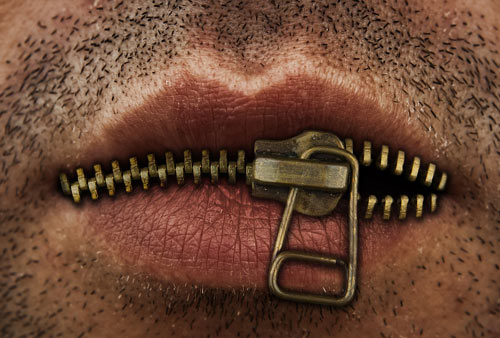
Born out of the prosecutions of antiwar speech during World War I, the American Civil Liberties Union has spent the succeeding decades litigating and lobbying to protect speech rights for everyone, from communists to Nazis.
Without the ACLU, Americans wouldn't have some of the most robust civil liberties in the world.
"No one else is doing this work with the kind of national impact," says Wendy Kaminer, a former ACLU board member, "and the kind of skilled lawyering."
If the ACLU steps back from speech cases, no other organization is ready to pick up the torch, in part because the ACLU is so synonymous with free speech that it attracts much of the donor interest and legal talent in this area.
What would happen if the ACLU stopped zealously litigating speech cases? Some critics worry that it's already happening.
In the Wall Street Journal, Kaminer highlighted a leaked memo about the ACLU's procedures for taking on cases. In speech cases, the memo says, the organization will consider the context of the speech, "the potential effect on marginalized communities," whether the speech advances the goals of speakers whose "views are contrary to our values" and "structural and power inequalities in the community in which the speech will occur."
Weighing content against speech rights, Kaminer argues, reflects "a demotion of free speech in the ACLU's hierarchy of values."
The ACLU's defenders say the memo merely regularizes a long-standing need to resolve conflicts between the group's civil liberties and civil rights agendas. David Cole, the ACLU's legal director, who oversaw the creation of the memo, tells me, "We've had to face these conflicts since the founding of the ACLU. And that reflects the fact that we chose to be a multiple-issue organization."
Nonetheless, he says, the ACLU still fights fiercely to protect unpopular speech, including for conservatives such as Milo Yiannopoulos. These sentiments are echoed by Nadine Strossen, the organization's former head.
But Ira Glasser, Strossen's predecessor, sides with Kaminer: "To deny that this departure from free speech policy is a departure is intellectually dishonest, an Orwellian smokescreen thrown up to obscure what they are doing."
Frankly, to an outsider, this often feels like watching classics scholars debate whether "The Iliad" was written by Homer or another poet of the same name. Critics concede that the conflict has existed for a while and that the ACLU nonetheless does defend some ugly speech; they just think that it's not taking enough such cases, especially on college campuses.
And ACLU defenders acknowledge that sometimes the organization steps back from First Amendment cases that conflict with other commitments.
Moreover, it's not as if we couldn't see that ourselves. In recent decades, the ACLU has often advocated restricting some civil liberties to advance equality: forcing the Boy Scouts to admit gay children, Catholic hospitals to perform abortions, nuns to buy birth control for their employees and evangelical Christians to bake cakes for gay weddings.
The memo has simply made something explicit that was already implicit in the ACLU's public choices.
Yet sociologist Ari Adut argues that that's exactly what a scandal is: something already tacitly known that becomes too explicit to ignore. Seeing the ACLU's conflicts laid out in print forces civil libertarians to directly confront the problematic nature of those choices.
American courts are an adversarial system where fundamental conflicts - security vs. privacy, equality vs. freedom of association - are supposed to be worked out under the public eye and ultimately decided by officials who have been appointed to that role by voters.
Given the ACLU's dominance on these issues, whenever its skilled lawyers decline to take the hard speech cases, there's a danger that the organization's internal debates are substituting for open argument in the public square. That's inimical to the very ideals the ACLU was founded to protect.
As civil rights litigation becomes less about correcting government abuses and more about rectifying private and structural discrimination, conflicts between civil rights and civil liberties are bound to increase. The ACLU is a wonderful organization, but it cannot displace the courts in resolving those conflicts.
Cole may be right when he says the organization's priorities haven't really changed. But the legal landscape has, which means the problem has become more acute.
Serving both missions well may demand that the ACLU give up one and make room for another organization that can pursue it without internal division. That would mean sacrificing some core part of the ACLU's identity - but the sacrifice may be the only way to save both missions.
Megan McArdle is a Washington Post columnist who writes on economics, business and public policy. She is the author of "The Up Side of Down." McArdle previously wrote for Newsweek-the Daily Beast, Bloomberg View,the Atlantic and the Economist.


 Contact The Editor
Contact The Editor
 Articles By This Author
Articles By This Author